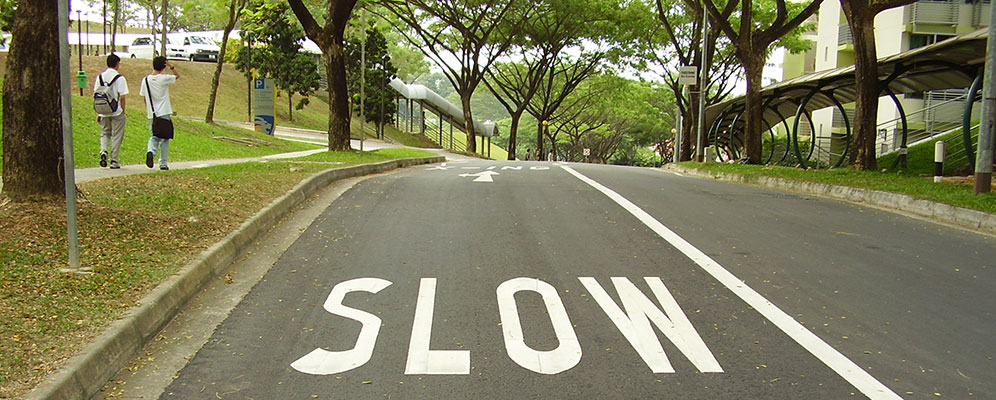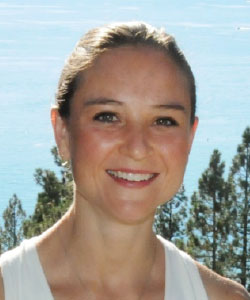By Heather Gilmartin Adams for EDRblog.org.
On a break in a recent workshop, I reflected to my co-facilitator on the energy of the group during a section I’d just led: “I can’t figure out what’s going on with them. They seem really edgy and are stuck in a victim mindset. Maybe the horrible echoes in the room are distracting? Or maybe they’re jittery because we haven’t worked with them in a few weeks?” My colleague replied, “It’s neither. They’re following you. Your energy is frenetic today.”
Ohhh…..
Looking back, I could see this was absolutely the case. I had prepared extensively for the content of the workshop, but had failed to prepare my mindset, work on my emotions, or articulate my intention for the event. I unconsciously went into the session with a performance orientation – I was simply focused on covering the material, on landing my points. When the conversation took an unexpected turn, I wasn’t able to adapt. I followed the participants into a downward-spiraling conversation in which they in various ways repeated and reproduced the mentality: “All our problems are because of THEM – it’s THEIR fault; we’re victims; we can’t do anything; we have no power.” I felt lost and had no idea how to turn the conversation around.

_____________________________
My colleague, who is far more experienced than I am and a great mentor, later said I needed to slow down. Slow down, he said, and the answer will come. Because I was so focused on landing point after point, I hadn’t left myself space to step back, see what was going on, and allow a new approach to form.
This wisdom seems to be everywhere in my life these days, which is why I found it timely to blog about it. For example, another mentor recently gave me the advice, “Slow down, and the magic inherent in the group will unfold.” Danya Rumore, the Associate Director of the Environmental Dispute Resolution Program, explained, “It’s all about helping them do the work they need to do.” I’ve even seen this wisdom imparted through the magazine Real Simple, which wrote in a recent article on parenting, “Be the thermostat, not the thermometer.”
However you phrase it, the message is the same: Slow down. Trust in the power of the group. Remember that your main job as a facilitator is to mold the environment and hold the energy in the room so the group can be effective in their work.
Get notified when new articles are posted to the EDR blog – sign up for our email list »
This message applies to any number of facilitation modes. It’s true in mediation, in collaborative problem-solving, and in the transformation workshops my company facilitates.
But I couldn’t have simply slowed down mid-stride in the meeting that day. I wasn’t in the right mind space. I realized belatedly that I needed to do the self-work ahead of time so that I could slow down in the moment. This is our challenge as facilitators. Often we prepare an agenda and plan the logistics of our sessions in detail, but neglect the less tangible – and arguably more critical – aspects of our preparation. I have started meditating regularly to develop my ability to pause in the moment, and I’m not the only one. I know a number of educators who integrate meditation, improv and/or mindfulness practice into their trainings to help facilitators, negotiators, mediators, and others in this field cultivate this important skill. I’d highly recommend Diane Musho Hamilton’s book, Everything is Workable, for more information on meditation.
More immediately, in our work at Co-Creation Partners, we’ve found it’s essential to make time before each session (including each day of a multi-day event) to do a “check-in.” We’ve noticed a real improvement in session outcomes since making check-ins a regular practice. In each check-in, we answer:
- How am I feeling?
- What interferences are keeping me from being fully present for this session?
- What are my intentions for this group? For me and my co-facilitator? For myself?
 I’m highlighting these two practices – meditation and check-ins – because they’ve been so pivotal in my growth as a facilitator and my company’s improvement as an organization. I hope they might prove equally useful for others.
I’m highlighting these two practices – meditation and check-ins – because they’ve been so pivotal in my growth as a facilitator and my company’s improvement as an organization. I hope they might prove equally useful for others.
Heather Gilmartin Adams is a consultant and engagement manager for Co-Creation Partners, an organizational culture transformation consultancy. With an educational background in international peacebuilding, she loves working at the nexus of organizational culture, personal transformation and conflict resolution. She holds degrees from Columbia and Princeton Universities.
